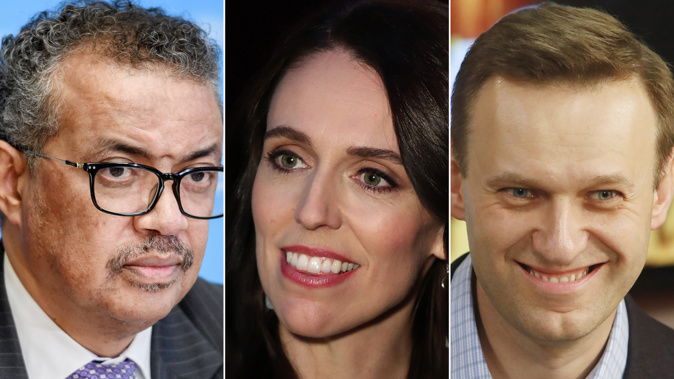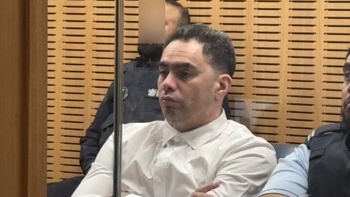
After a year brutally dominated by conflict, division, economic uncertainty and a pandemic, the awarding of the 2020 Nobel Peace Prize will mark a rare moment of hope.
The winner of this year's prize will be announced on Friday -- the end of a week of Nobel announcements that will be scaled back by the virus, but which have already attracted speculation worldwide.
"I'm less sure (of who will win) this year than I have been for a long time," Dan Smith, the director of the Stockholm International Peace Research Institute, told CNN.
As always, the names of the contenders are fiercely guarded by the Norwegian Nobel Committee. There are 318 candidates, of which 211 are individuals and 107 are organizations, but as per tradition their names will not be divulged for 50 years.
But experts feel the judges will be more conscious than ever of the prize's significance this year.
"I think they very often do want to send a message with the prize," Smith said. "Above all, they have to try to give a message of hope and a belief that things can get better."
A Covid peace prize?
The favorites for this year's prize are heavily shaped by the events of a uniquely volatile year; the World Health Organization (WHO) tops most bookmakers' lists after 10 months spent tackling the coronavirus pandemic, and the Black Lives Matter movement is also included by some tipsters for pushing the issues of systemic racism and police brutality into the global conversation.
Either selection would be interpreted in some corners as an unusually political choice; WHO has been criticized, most vocally by US President Donald Trump, for its handling of Covid-19, though the organization has been robustly defended by the vast majority global leaders.
But Nobel experts put little stock in bookmakers' odds -- and believe it's unlikely either will triumph.
"I'm quite skeptical, primarily because of the criticism that has been waged against the WHO -- even though I think it's overblown," said Henrik Urdal, the director of the Peace Research Institute Oslo (PRIO). "The jury is still out when it comes to the way the WHO has handled the pandemic."
The Nobel committee often looks beyond the candidates most visible in the year's news cycle, instead opting to highlight people or organizations whose work has encompassed many years and may not have been elevated into the global spotlight.
That's what makes predicting Nobel winners such a difficult exercise; but Urdal's organization attempts to do just that, and its shortlists of five potential winners have proven correct in the last two years.
Next week, Urdal expects the fight for press freedom to be recognized. "This is the year where we've focused extensively both on the importance of getting accurate information on the conflicts of the world (and the) increasingly difficult environment for journalists and NGOs operating in conflict theaters," he told CNN.
A growing assault on press freedom has been launched in recent years, with leaders reaching for inflammatory rhetoric, and journalists' rights being chipped away in numerous countries. Such a selection would also nod to broader concern at misinformation and fake news.
The Committee to Protect Journalists (CPJ) tops Urdal's list, but he also highlighted Reporters Without Borders (RSF) as a potential victor. An individual journalist could also win, he said.
"There is a direct link between the work that journalists are doing and the ability of the global society to address conflict," Urdal said.
A diverse set of candidates
Since it first awarded a Peace Prize in 1901 -- to Red Cross co-founder Henry Dunant and pacifist Frédéric Passy -- the Norwegian Nobel Committee has been notoriously enigmatic in its selection process.
This year, experts believe the popular revolution in Sudan, which ousted President Omar al-Bashir, could be recognized by judges, with both the Forces for Freedom and Change (FFC) and young activist Alaa Salah highlighted by Urdal.
"I think the development in Sudan is the most significant conflict transformation process that we've seen in the past year," Urdal said. "My worry is that the new civilian government is relatively weak, so that situation is quite fragile."
Alexei Navalny, the Russian opposition politician and Kremlin critic who suffered a near-fatal poisoning in August, is also being tipped by some Nobel-watchers. "Navalny was on our list before he was poisoned, and it just demonstrates the current challenges with being an opposition politician in Russia," Urdal said.
Smith also believes a global organization may be honoured -- a choice that would underpin the role that such groups play in keeping the peace in a time of uncertainty. He also suggests the United Nations could be a potential winner in its 75th year.
Thunberg could be a polarizing choice
Teenage climate activist Greta Thunberg was seen as a serious contender for last year's prize. But Thunberg's association with the award is somewhat polarizing among Nobel circles -- and whether or not a climate campaigner is honoured this year may depend on how exactly the committee defines "peace."
"I would be quite surprised (to see Thunberg win)," Urdal said.
"It's important to underscore that climate is one of the most serious challenges that we're facing now," he added. "What I'm questioning is the link between climate change and armed conflict, which is very often overstated.
"There are those (who are) sceptical about emphasizing the link between climate change and insecurity," Smith noted. "I'm not one of those -- I think there is clear evidence ... between climate change and security."
New Zealand leader Jacinda Ardern has been touted as a possible winner in the past, and her country's success in tackling the coronavirus would only help her potential selection, but her lack of involvement in major global treaties would set her apart from most leaders to take the prize.
Trump, who is currently being treated for coronavirus in a Washington DC hospital, has also been mooted in connection with the award -- but the news that he has been nominated for the prize was widely misconstrued by many.
"Being nominated is not the same as being considered a worthy candidate," Urdal notes. Any person who meets the criteria can be put forward by someone else for the prize, and any US president is likely to have their name submitted.
"I would have said that Donald Trump is absolutely not (a candidate)," Smith said.
The highly anticipated announcement will be made on Friday at the Norwegian Nobel Institute. But the answer to who will benefit from the closed-door discussion is as elusive as ever.
text by Rob Picheta, CNN
Take your Radio, Podcasts and Music with you









